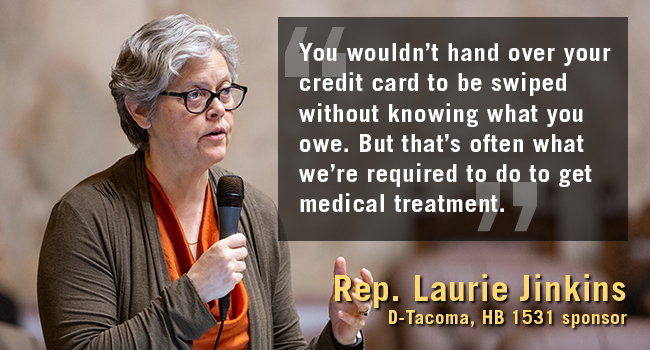From: Rep. Laurie Jinkins <RepLaurieJinkins@updates.leg.wa.gov>
Date: Thu, Apr 11, 2019 at 2:01 PM
Subject: Protecting consumers: Debt collection bills close to finish line
To: <maureenhowardconsulting@gmail.com>
|
|
||||
3320 S. 8th Street
Tacoma, WA 98405




